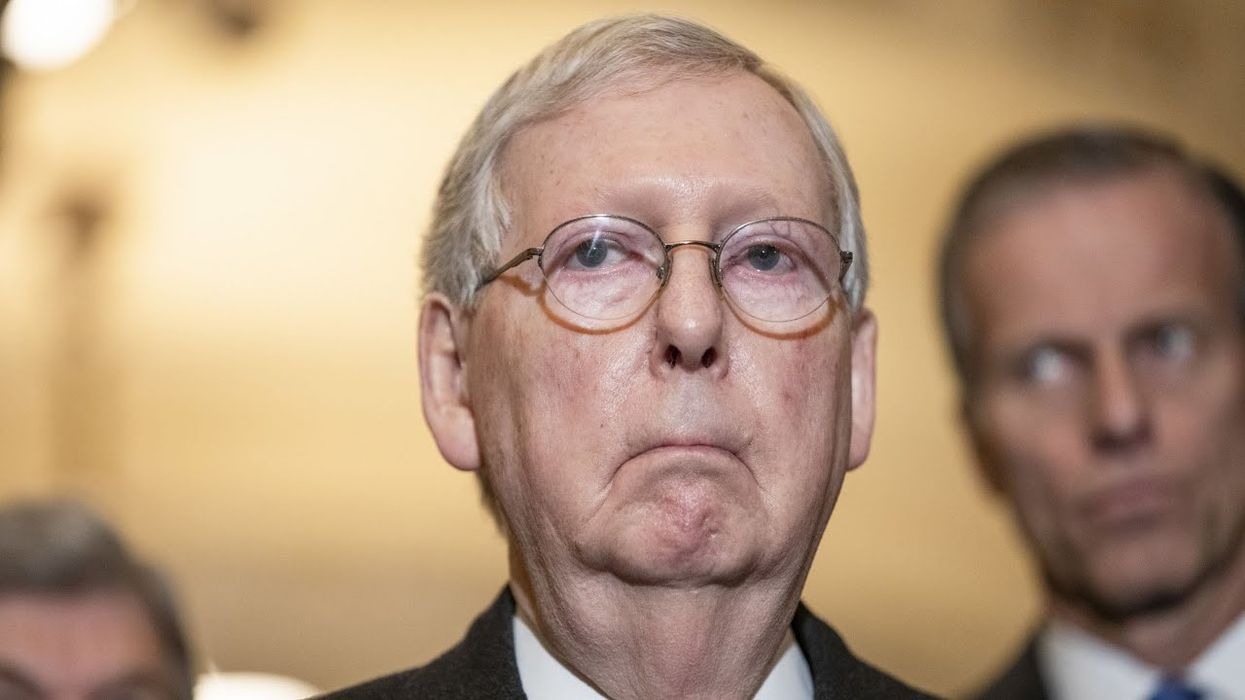The most prominent conservative group pushing to overhaul election procedures during the coronavirus pandemic has expanded and refocused its campaign.
The targets of a new, $750,000 advertising blitz are 10 GOP senators. The group controls the fate of a proposed infusion of cash to pay for diversified voting options this year, mainly by accommodating an expected surge of absentee balloting.
Republicans for the Rule of Law has purchased three weeks of airtime on Fox News affiliates in their states and on Facebook, starting Wednesday, urging them by name to support funding in the next economic stimulus package.
At this point the GOP-led Senate has signaled it's not in any rush to respond quickly to the sprawling, $3 trillion measure House Democrats appear on course to pass within the week. It includes all $3.6 billion in election aid that good-government groups say is necessary to assure a safe and comprehensive presidential election — and that state election officials, from both parties, say must be provided relatively quickly if it's to get productively spent on time.
The group is an arm of an organization created by many of President Trump's most powerful critics on the right, dubbed Defending Democracy Together, which ran another wave of TV spots last week that targeted a more general audience.
The ad focused on Majority Leader Mitch McConnell is airing nationally on Fox, MSNBC, CNN and several stations owned by the conservative-leaning Sinclair Broadcasting in addition to statewide in Kentucky, where McConnell faces a well-financed challenge to his bid for a seventh term this fall.
The new 60-second ads are identical, except for the call to action for the 10 senators, who are evenly divided in two camps.
Five are members of the committee that will write the Senate's counter-proposal to whatever the House passes, and will then be central to the negotiations over compromise spending levels: McConnell, Richard Shelby of Alabama, John Kennedy of Louisiana, Roy Blunt of Missouri and James Lankford of Oklahoma.
Blunt and Lankford were also central to getting an initial $400 million in election aid approved as part of the recovery package enacted in March. Blunt, who's also No. 4 in the GOP leadership, is a former chief elections official in Missouri, which has one of the strictest restrictions in the country on who may vote absentee — and where the state's conservative government has shown no interest in altering them.
The other senators are all in highly competitive races for re-election this fall, and polling in their states has shown lopsided and bipartisan support for expanded voting by mail: Martha McSally of Arizona, Cory Gardner of Colorado, Joni Ernst of Iowa, Susan Collins of Maine and Thom Tillis of North Carolina.
That public sentiment would seem to give GOP senators a solid rationale for backing the money. But they are being urged to resist it — at least in public — by the president, who on Twitter and at several coronavirus press briefings has alleged without evidence that widespread voting from home leads to widespread cheating and incubates organized fraud.
With or without the money, however, states are expecting a record use of absentee ballots this fall — because, even if stay-at-home orders are lifted, millions will conclude that avoiding local polling places is an easy call in a season when another wave of the Covid-19 outbreak is expected.
Just this week, for example, officials in Iowa announced that 356,000 people had requested and been sent absentee ballots for the June 2 congressional and legislative primaries. That is seven times the number that voted by mail in those primaries two years ago, and nine times the number from 2016 — even though the state was largely reopened for business two weeks ago.
Senator Ernst: Keep Our Elections Safewww.youtube.com




















Trump & Hegseth gave Mark Kelly a huge 2028 gift